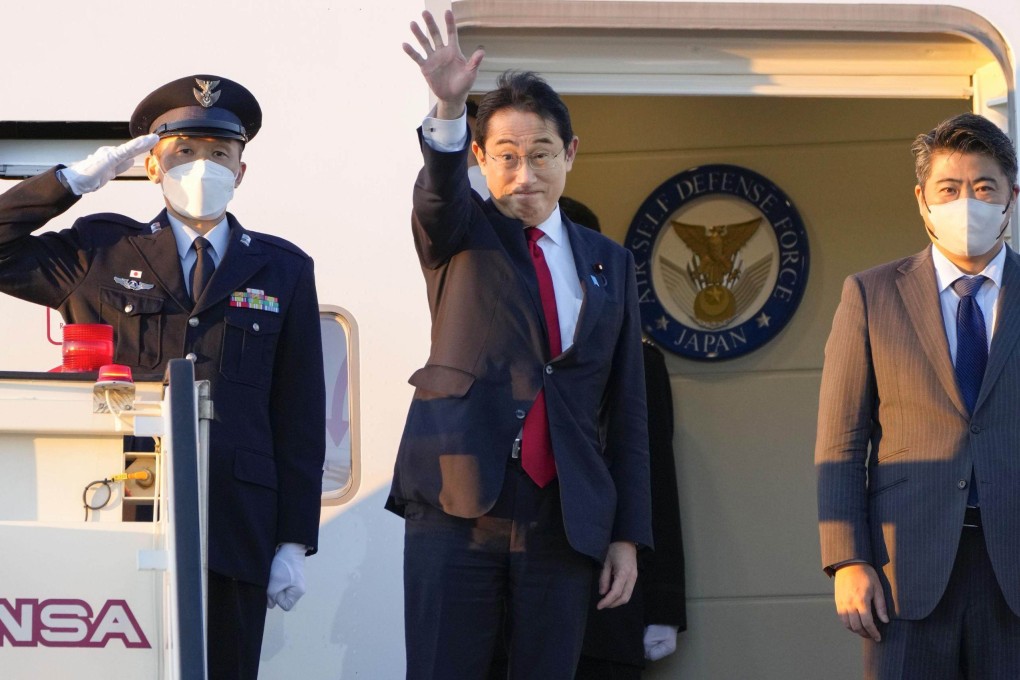Advertisement
Was China the focus of Japan PM Kishida’s whirlwind G7 ‘summit diplomacy’ tour?
- Fumio Kishida used his week-long tour of France, Italy, Britain, Canada and the US to shore up support and seek security assurances as tensions rise
- Analysts say the ‘emerging possibility’ of a Taiwan invasion focused minds as Tokyo balances military deterrence of China with economic engagement
Reading Time:3 minutes
Why you can trust SCMP
16

Japan’s Prime Minister Fumio Kishida embarked on a whistle-stop tour of fellow G7 member states this week, seeking closer defence ties and assurances from Western partners against a backdrop of rising geopolitical risk and growing threats to the rules-based international order.
Russia’s almost year-old invasion of Ukraine and the “emerging possibility” of mainland China invading Taiwan would have been front of mind during his week-long “summit diplomacy” tour, analysts said, as Kishida laid the groundwork for Japan hosting the next meeting of the Group of 7 wealthy club of nations in May.
In France on Monday President Emmanuel Macron said “Japan can count on our unfailing support” against North Korea, in particular, while also vowing to continue “joint actions in the Indo-Pacific”.
Advertisement
Italy and Japan on Tuesday agreed to form a “strategic partnership” and for their foreign and defence ministers to begin holding joint “two-plus-two” security talks like the ones Tokyo already has with the US, India and Australia.
In Britain on Wednesday, Kishida signed a defence agreement allowing the two countries to deploy forces on each other’s soil – similar to the one Japan and Australia signed in January – followed by a visit to Ottawa on Thursday where he was set to meet Canadian counterpart Justin Trudeau.
Advertisement
Advertisement
Select Voice
Select Speed
1.00x
